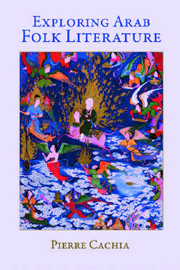Book contents
- Frontmatter
- Contents
- Acknowledgements
- Dedication
- Foreword by Professor Clive Holes
- Introduction
- The Transcription of Both Classical and Colloquial Arabic
- Part 1 Fact Finding
- Part 2 Single or Related Items
- Part 3 Cultural and Social Implications
- 14 Two Perspectives on the ‘Other’ in Arabic Literature
- 15 Maltese: Arabic Roots and Sundry Grafts
- 16 Social Values Reflected in Egyptian Popular Ballads Studies in Modern Arabic Literature, ed. R. C. Ostle (London, 1975)
- 17 Folk Themes in the Works of Najīb Surūr Arabic and Middle Eastern Literatures, 3, 2 (July 2000)
14 - Two Perspectives on the ‘Other’ in Arabic Literature
from Part 3 - Cultural and Social Implications
Published online by Cambridge University Press: 05 February 2015
- Frontmatter
- Contents
- Acknowledgements
- Dedication
- Foreword by Professor Clive Holes
- Introduction
- The Transcription of Both Classical and Colloquial Arabic
- Part 1 Fact Finding
- Part 2 Single or Related Items
- Part 3 Cultural and Social Implications
- 14 Two Perspectives on the ‘Other’ in Arabic Literature
- 15 Maltese: Arabic Roots and Sundry Grafts
- 16 Social Values Reflected in Egyptian Popular Ballads Studies in Modern Arabic Literature, ed. R. C. Ostle (London, 1975)
- 17 Folk Themes in the Works of Najīb Surūr Arabic and Middle Eastern Literatures, 3, 2 (July 2000)
Summary
The ‘Other’ in Egyptian Folk Literature
Despite an apparently straightforward title, I have to start with some caveats and reservations, for it is by no means easy to determine what the limits of folk literature are in an Arabic-speaking country. Least of all must it be assumed that it conforms with popular notions of what its European cousins were or are like. Thus, it is only partially true that its compositions are anonymous, or are the creations of illiterate authors, or are confined to the countryside, or are composed and transmitted only orally.
In a book-length study of a single genre in Egyptian folk literature I have argued that the least diffuse of the criteria by which a composition may be judged to be genuinely ‘folk’ is the public to which it is addressed. This public is at the opposite pole from the minority who have acquired a Western type of education and who produce the ‘high’ literature too often assumed to be representative of modern Arab societies. The bulk of this public consists of illiterate villagers, but it also includes millions who reside in the poorer quarters of cities, and possibly also a fair number of those who have had a modicum of traditional Islamic education.
An extreme example that I mentioned in my book is that of a prolific versifier who was city-bred, had an Azhar education, made a living as a clerk in the railway yards in Cairo, never performed in public, but either taught his compositions to others or had them printed in cheap booklets.
- Type
- Chapter
- Information
- Exploring Arab Folk Literature , pp. 161 - 177Publisher: Edinburgh University PressPrint publication year: 2011



